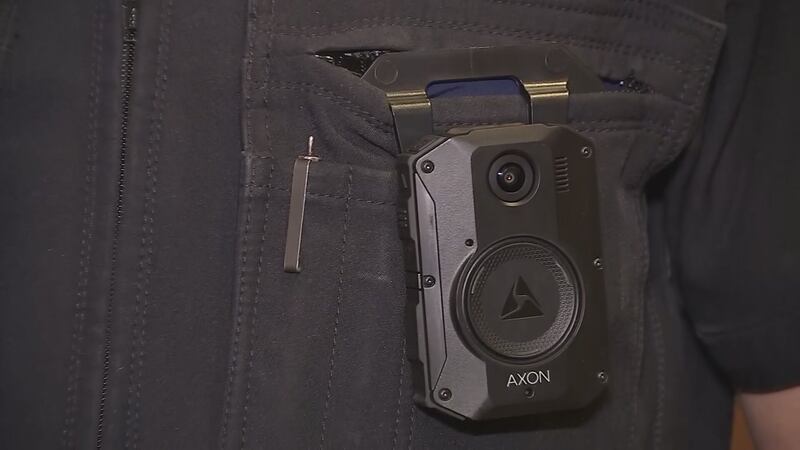KING COUNTY, Wash. — The King County Sheriff’s Office is one step closer to implementing body cameras for all on-duty officers.
None are currently in use within the department, and until now, the department has pointed to a lack of funding as a reason for the holdup. But Friday, Congresswoman Kim Schrier says she’s helped secure $1 million in federal funding that should make those cameras a reality for the department.
In a letter to the House Appropriations Committee, Schrier wrote, “Over the last 10 to 15 years, Body Worn Cameras (BWC) have become standard practice for many police agencies and King County Sheriff’s Office is the largest law enforcement agency in Washington State not using BWC technology… This funding would allow earlier deployment.”
Friday, joined by King County Sheriff Patti Cole-Tindall, Schrier said, “Our police officers, our law enforcement officers need to have the tools that they need to police, keep our communities safe and make sure we get the right resources at the right time.”
But some residents tell KIRO 7 the ‘right time’ was years ago.
“Unfortunately, we get into a dialogue about cost,” said Seattle attorney Jeff Campiche. “What cost is justice?”
Scroll down to continue reading
More news from KIRO 7
- 22 years of construction on I-5 in Tacoma wraps up with opening of HOV lanes this weekend
- Be on the lookout for oversized, striped-eyed grasshoppers in Everett area
- Graves of Black miners found near those of whites in Newcastle Cemetery
- Do you have an investigative story tip? Send us an email at investigate@kiro7.com
Campiche represented the family of Tommy Le, a man shot and killed by King County sheriff’s deputies in 2017. It took nearly four years before the department was ordered to pay the family $5 million. During that time officers redacted parts of their testimony about the shooting. The Le family believes body cameras could have spared them some of the pain and anguish. Campiche recalls a public forum where the family confronted law enforcement officers.
“The sister stood up and asked the sheriff, ‘Why aren’t there body cameras?’ And he said, ‘Well, we’ve asked for him, there isn’t money for him.’ And she said, ‘The truth would be easier to see,’” said Campiche.
Cole-Tindall says it’s more than just budget that has created a years-long hurdle. She says collective bargaining has and will continue to play a role, as cameras would need to be negotiated with the labor union. But she’s optimistic following a 90-day pilot program earlier this year, in which 10 officers trialed body cameras.
“Our deputies want these cameras,” said Cole-Tindall. “Our community wants these cameras as well.”
Police body cameras have been around since 2005. Campiche says the department should view them as an important asset for transparency and accountability.
“The policeman can defend against a false claim that they did something wrong. And the public can prove when the officer did do something wrong,” said Campiche. “It’s a win-win situation.”
Cole-Tindall says she expects body cameras in the future for her department but doesn’t have a timeline. She says that when they are added to patrols, they’ll be introduced one precinct at a time, not all at once.
©2022 Cox Media Group








